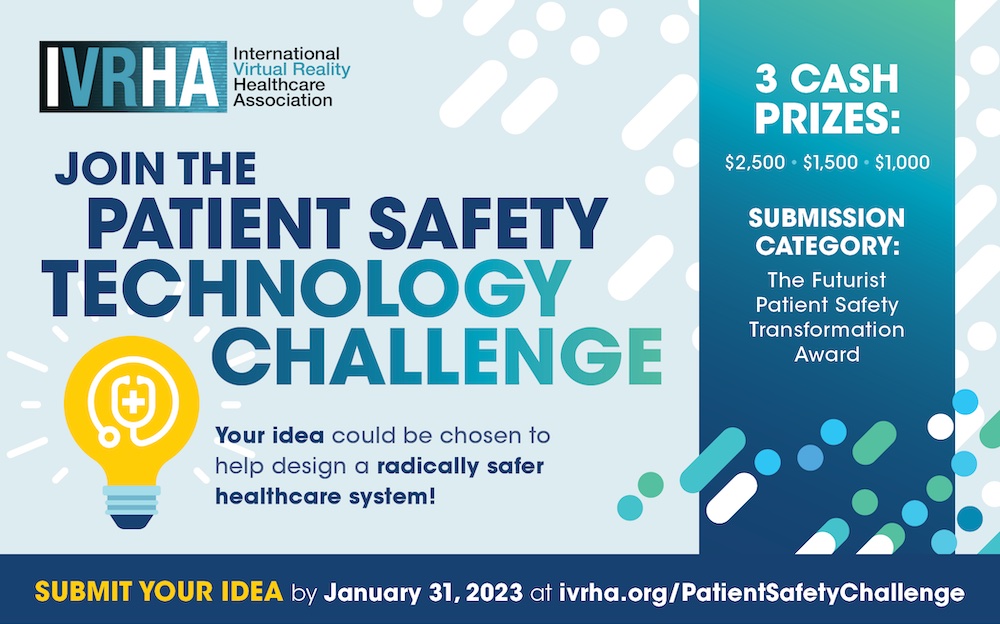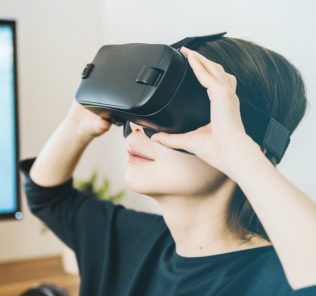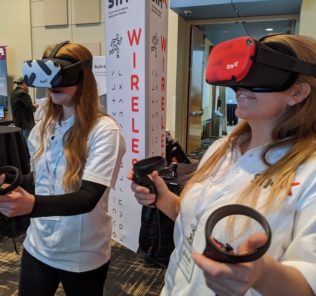Submit Your Ideas: IVRHA Patient Safety Technology Challenge
While clinical simulation is working to advance the field of medicine toward increased patient safety measures, medical errors continue to occur each day. For this reason, healthcare simulation companies and organizations worldwide seek new ways to better train medical professionals and deter such errors. In doing just that, the International Virtual Reality Healthcare Association (IVRHA) is currently hosting a Patient Safety Technology Challenge that asks for idea submissions that could help design a radically safer healthcare system. The deadline to submit an idea is January 31, 2023.
According to IVRHA, submission guidelines include that applicants will be awarded for envisioning a transformative approach for a vastly safer healthcare system, sending legacy systems out the door. Applicants should focus their ideas on reinventing “who delivers what care, where, when, and how, incorporating modern technology, new professional roles, new education methods, and new construction to achieve safe optimal care.” Further, the organization stresses that each individual or team should keep the major sources of harm at the forefront of the approach.
Additionally, IVRHA will accept PDF submissions only. Each submission should be in the form of a written essay/explanation of the vision/idea and needs to be a minimum of 500 words and a maximum of 2000 words. A submission may include visuals (diagrams, pictures, flow charts, etc.) as part of the PDF submission. The submission must include the applicant’s name and email at the top of the PDF document.
Sponsored Content:
Sponsorship of this contest was made possible through a grant from the Pittsburgh Regional Health Initiative and the Jewish Healthcare Foundation. Judges for the contest include:
- Lance Baily, Founder, and CEO of HealthySimulation.com
- Dr. Mark Zhang, Medical Director, Innovation Hub, Mass General Brigham
- Dr. Anne Bailey, Director, Clinical Tech Innovation, Veterans Health Administration
- Dr. Brendon Hale, Vice-President of Health and Market Outcomes Research, Penumbra
- Fran Ayalasomayajula, President of Reach
Recorded IVRHA HealthySimulation.com Webinar: Presenting the International Virtual Reality and Healthcare Association
Presented by Robert Fine, ABD, MS, this one-hour, beginner webinar provides an overview of the International Virtual Reality and Healthcare Association (IVRHA), its mission, members, research, resources, and more. According to Fine, decades of research show that virtual and augmented reality (VR/AR) technologies can address the most difficult problems in healthcare. Ranging from mood disorders such as anxiety and depression to post-traumatic stress disorder (PTSD), addiction, autism, cognitive aging, as well as neuro and physical rehabilitation.
He shares that VR/AR technology will continue to have an impact by enabling objective clinical assessments as well as providing for improved skill training and procedure planning. Personal health and wellness can also be improved by using immersive systems to promote better nutrition, engender healthier lifestyles and reduce personal stress and anxiety. Further, as the cost of healthcare rises, VR and AR can serve as effective telemedicine platforms to reduce the costs of care delivery and improve clinical efficiency in both urban and rural settings. Knowing this, the learning objectives of this webinar include to:
Sponsored Content:
- Learn about the mission and vision of the IVRHA.
- Consider how Virtual Reality innovations will improve healthcare education and training.
- Review the latest research associated with virtual reality in medicine and healthcare.
More About IVRHA
On a mission to facilitate and support the growth of the virtual reality healthcare industry, the International Virtual Reality Healthcare Association (IVRHA) is comprised of members throughout the healthcare ecosystem. This includes professionals at technology companies, who teach at hospitals and universities, as well as healthcare providers and insurance companies. Together, these members support the progression of virtual reality in medicine in a way that promotes increased use across the field.
Through this support, IVRHA hosts several industry-related events throughout the year. One of these events is the Inaugural Virtual Reality and Healthcare Technology Transfer Conference. IVRHA explains that researchers at universities nationwide are building virtual and extended reality (VR/XR) applications for use in healthcare — to better detect, diagnose, and treat medical conditions and improve quality of life. The organization hosts this two-day conference for both inventors behind cutting-edge healthcare research, and the outside companies and partners with interests in the field.
The other event hosted by IVRHA is the Annual Virtual Reality and Healthcare Europe Symposium. This conference has a strong focus on providing unique content and perspectives from across the healthcare spectrum. The event also focuses on providing new emerging voices from across the ecosystem: care, technology, research, and policy.
More About Virtual Reality in Medicine
Virtual Reality in Medicine is a three-dimensional teaching tool used across the field of healthcare as a means of both education and instruction. Virtual reality commonly refers to healthcare simulation environments in which learners can experience visual stimuli delivered via computer graphics and other sensory experiences. This advancing technology allows learners to obtain the knowledge and understanding necessary to perform a number of tasks and procedures involving the human body without ever having to practice on a live patient.
Central to this technology is the immersive capacity of virtual reality, meaning that the simulated environment surrounds a learner’s perceptual field. This means that the user feels psychologically present in the digital world, rather than in their physical reality. Used to educate learners on diagnosis, treatment, rehabilitation, surgery, counseling techniques, and more, Virtual Reality in Medicine is helping to train the next generation of healthcare professionals. This medical simulation technology has shown to have a number of benefits, such as allowing learners to practice their skills without fear of error causing potentially life-threatening impacts.
The virtual reality tools still provide the hands-on experience required to acquire familiarity and comfort in performing procedures, but in a safe and controlled setting. Therefore, as learners make mistakes, they can be thoroughly corrected in real-time and without risk. As virtual reality modules still require interaction, skills can become second nature before they are applied in real-world scenarios.
For example, virtual reality in medicine can be used for paramedic training by having learners interact with simulated emergencies where they are faced with high-pressure situations. By learning to respond accordingly, they will be better equipped to handle similar occurrences once they are in the field.
Submit your Idea to the IVRHA Safety Technology Challenge
Lance Baily, BA, EMT-B, is the Founder / CEO of HealthySimulation.com, which he started in 2010 while serving as the Director of the Nevada System of Higher Education’s Clinical Simulation Center of Las Vegas. Lance also founded SimGHOSTS.org, the world’s only non-profit organization dedicated to supporting professionals operating healthcare simulation technologies. His co-edited Book: “Comprehensive Healthcare Simulation: Operations, Technology, and Innovative Practice” is cited as a key source for professional certification in the industry. Lance’s background also includes serving as a Simulation Technology Specialist for the LA Community College District, EMS fire fighting, Hollywood movie production, rescue diving, and global travel. He and his wife live with their two brilliant daughters and one crazy dachshund in Las Vegas, Nevada.
Sponsored Content:





















